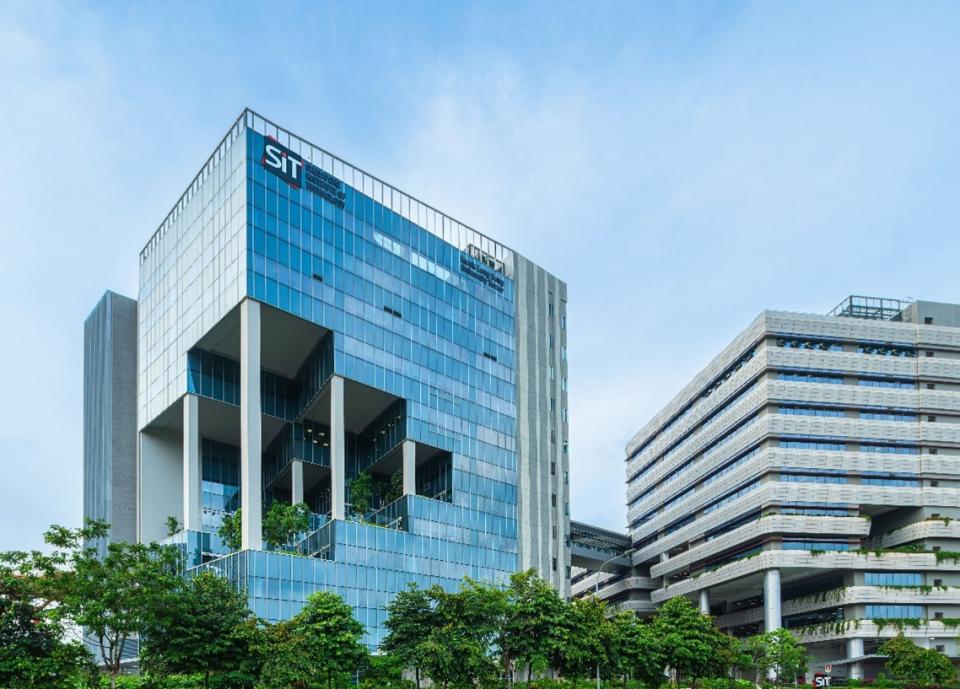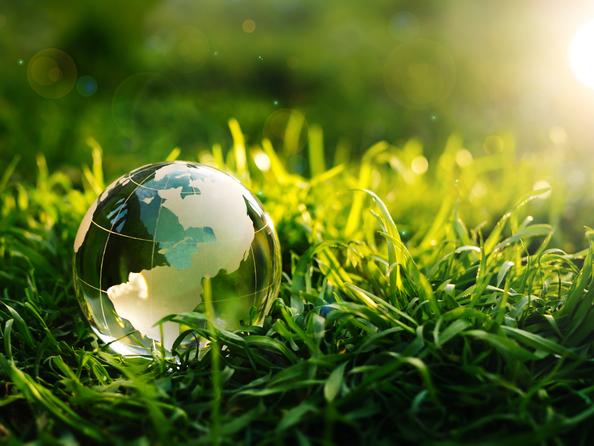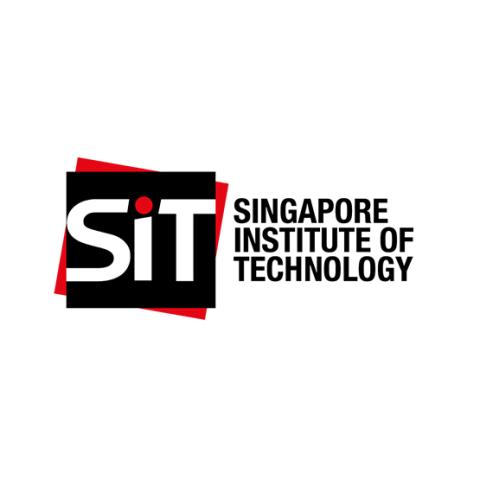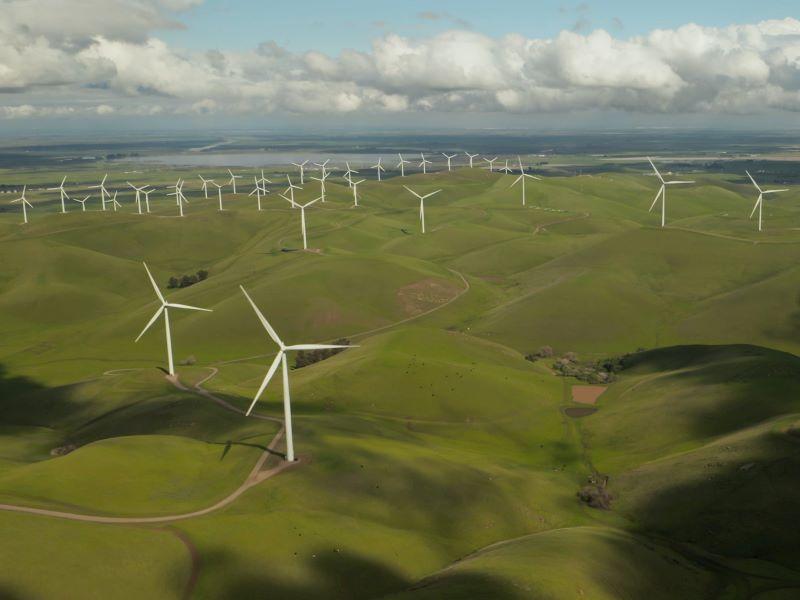
Building a sustainable future on campus
To create a sustainable future that benefits the planet, people and economy, we’re focusing on becoming a sustainable campus. Through innovative practices, resource efficiency and community engagement, we aim to create a campus environment that not only reduces its ecological footprint but inspires a culture of sustainability among students, staff and the wider community.
Integrating sustainability principles in the development of our new campus
Sustainability is one of the key guiding principles in the design and construction of Singapore Institute of Technology’s new home in Punggol. Since September 2024 we’ve been in the process of relocating our six satellite campuses to Singapore’s first smart district, the Punggol Digital District, master-planned and developed by Jurong Town Corporation, a key government agency driving industrial progress.

All buildings on SIT Punggol Campus have been awarded the prestigious Building and Construction Authority’s Green Mark Platinum, showcasing our dedication to sustainable development. Two buildings also boast the Universal Design Mark GoldPLUS (Design) Award and Super Low Energy (SLE) certification – the food court and multi-purpose hall – which both aim to achieve at least 40 per cent energy savings based on prevailing standards.
The food court adopts hybrid cooling and has a building integrated photovoltaic (BIPV) roof that generates renewable energy. The use of data-driven automation allows its operations to be adjusted according to prevailing weather conditions, ensuring a comfortable dining experience for visitors. The multi-purpose hall employs passive displacement ventilation for efficient cooling and uses extensive high-performance glass windows to reduce solar heat gain.
- Bridging the SDG awareness gap
- Three ways to create lasting change towards sustainability in your university
- Spotlight collection: a greener future for higher education
We’re collaborating with multinational power company ENGIE and Singapore’s electricity and gas distribution company Singapore Power to build a district cooling system (DCS) and Southeast Asia’s largest multi-energy microgrid (MEMG) on a campus respectively. The DCS improves energy efficiency by about 30 per cent compared with traditional cooling methods, while the MEMG integrates various low-carbon solutions, including BIPVs and distributed energy storage systems, helping to increase energy savings.
Additionally, the campus attained the Public Utilities Board’s Active Beautiful Clean Waters Certified (Gold) Award for its innovative rainwater harvesting and sustainable stormwater management systems, seamlessly integrated into the campus design. Such systems allow water to be harvested for non-potable consumption such as landscape irrigation. These accolades reflect our dedication to creating a green, forward-thinking campus.
Embedding sustainability at the core of SIT
In 2022, sustainability was integrated as one of SIT’s core values, reinforcing the university’s vision and mission and establishing a foundation for embedding sustainable practices within our policies, operations and curriculum. It is cultivated through sustainability-embedded content within the curriculum and a series of engagement initiatives and outreach programmes designed to involve both students and staff. For us, fostering a culture of sustainability goes beyond environmental conservation. It also includes nurturing a positive learning and work culture, as well as being a responsible organisation.
Educating students and staff on sustainability
Since 2022, a mandatory sustainability micro-module has been incorporated into all undergraduate programmes, covering essential concepts such as the significance of sustainability, its multidisciplinary nature and actionable strategies for sustainable development. Additionally, the compulsory Social Innovation Project module brings students from different disciplines together to address some of the multifaceted social challenges faced by our society using a multi-pronged, problem-solving and collaborative approach. These initiatives equip students with critical sustainability perspectives that they can apply across all their coursework.
For staff, a dedicated sustainability module was launched in 2023, as part of their ongoing learning and development training. This module aims to deepen their understanding of sustainability principles and practices, ensuring that the entire community is engaged and aligned in our commitment to fostering a sustainable future.
Becoming a zero-waste campus
The Reduce, Reuse and Recycle initiatives we’ve implemented educate both students and staff, fostering the development of habits that align with circular economy principles:
- Students and staff are encouraged to reduce daily usage of disposables as single-use containers, cups and cutlery are not provided for takeaway at Punggol Campus food courts, as part of our “Love the Taste, Not the Waste – Bring Your Own” campaign. This initiative nudges individuals to make environmentally conscious choices, promoting responsible consumption practices.
- The introduction of transparent, segregated recycling bins on all SIT campuses reduced contamination and increased the recycling rate of metal cans, plastic bottles and paper compared with using opaque recycling bins. In 2022, these efforts have successfully diverted 15,000kg of recyclables from being incinerated as general waste.
- Food waste segregated by food court patrons is collected for composting. The resulting compost is then used as fertiliser for the campuses’ landscaping. By transforming food waste into a valuable resource, we enhanced the sustainability of our green spaces while promoting a circular economy within our community.
SITizens for sustainability
By creating a conducive environment that intentionally cultivates sustainability values and habits, students and graduates are empowered to become agents of positive change within their communities. Additionally, equipped with practical knowledge and competencies developed through our applied learning pedagogy and sustainability-related curriculum, they are well positioned to effectively address pressing societal and environmental challenges in Singapore and beyond.
Gerry Wee is associate vice-president for estates at Singapore Institute of Technology.
If you would like advice and insight from academics and university staff delivered direct to your inbox each week, sign up for the Campus newsletter.




